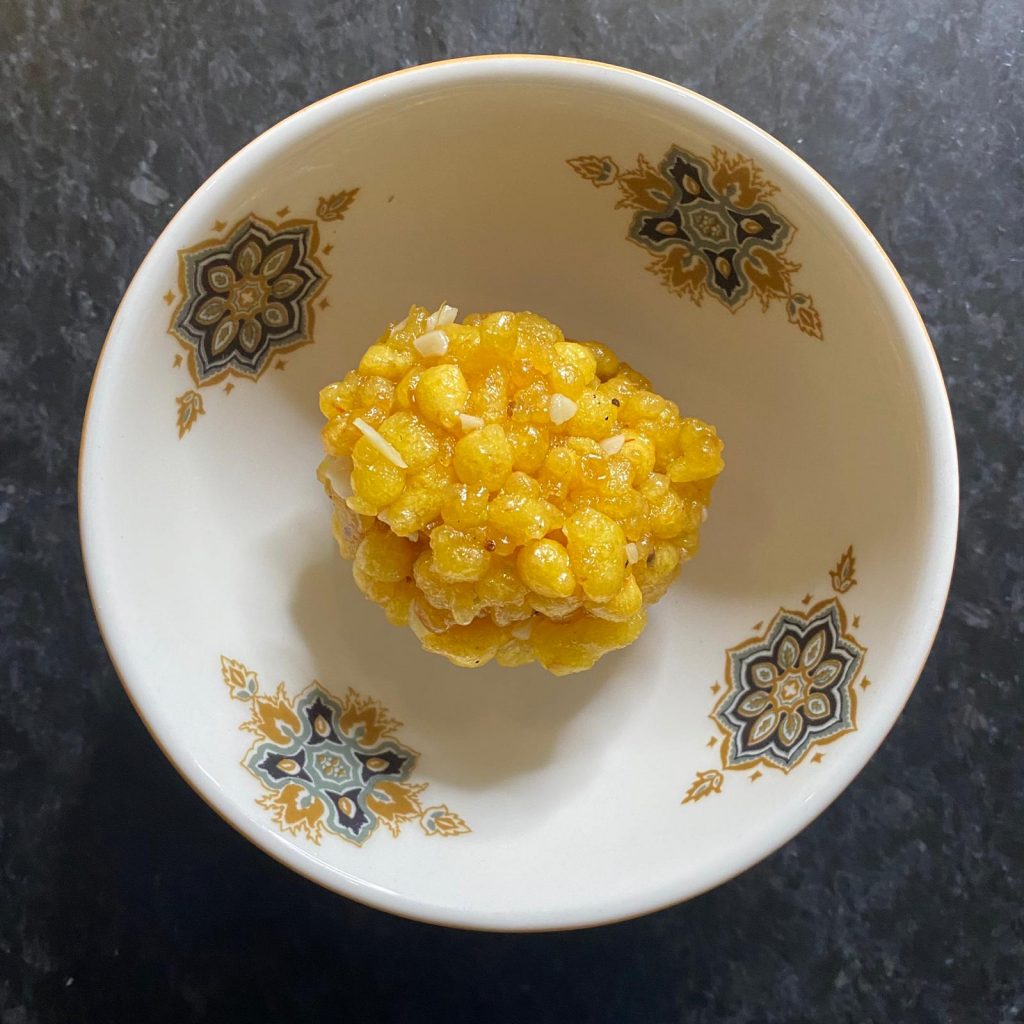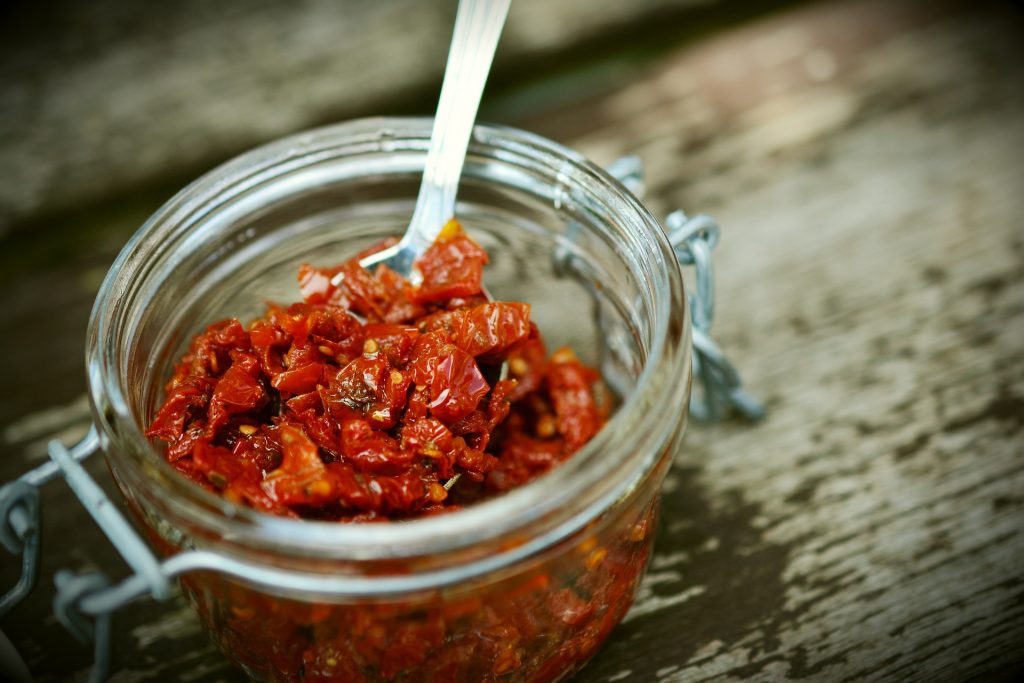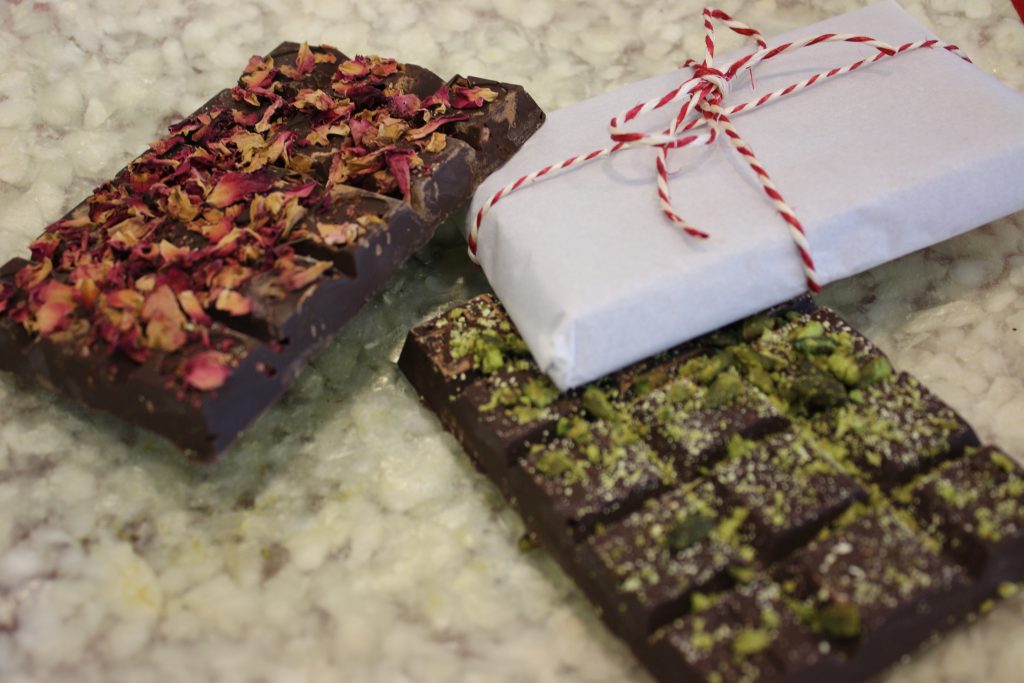Motichoor Laddoo
Making Motichoor ke laddoos is easy but time-consuming. I’ll be honest until the second lockdown, I never made this before but the lockdown has made us all do things that we don’t usually do and at Diwali time, I would normally head to my favourite Indian Mithai shop and stand in line for the most amazing sweets. Even if the shop is open, I can’t see myself queuing for hours and social distancing. It’s just safer to stay home and convert recipes. I have a Thermomix, remember and in my Thermomix, I can make almost anything.
This recipe is for Motichoor Laddoo (also laddu) is a poplar and attractive, round-shaped laddoo recipe made with saffron-colored, boondi pearls. It is a well known sweet recipe and mainly prepared for festivals and occasions to share with family and friends. It is usually made with a boondi jhara but this recipe uses commonly available kitchen spoons.
The major difference between Boondi laddoo and motichoor laddoo is the size of the tiny boondi/fried gram flour balls. Boondi laddoo has the gram flour balls bigger in size and motichoor laddoos have smaller ones. Both the ladoos are made from gram flour or besan batter. The batter is poured through a ladle or sieve with perforations and these give rise to round shaped droplets, called as boondi (derived from the word ‘boond’ in hindi which means water droplets).
There are two types of boondi laddoos; one is a soft textured one and the other is a crisp hard one. Both these laddoos have some variations in the method, thus yielding different textures.
In Hindi the word ‘moti’ means pearl and ‘choor’ means to crush or crumble. Literally translated to crumbled pearls. Actually, when you hold these laddoos in your hand and even apply a little pressure, they crumble.
Laddoos are offered to many Indian gods & goddesses. Many Indian temples offer ladoos as prasad to the devotess. One of the most famous laddoos, we have had as prashad, are from the tirupati temple in Andhra Pradesh, India. Another prashad, we look forward is the boondi ladoo from shirdi sai temple, nasik, India. Whenever we want to make any food for deities then refrain from tasting or smelling the food. Prepare the food with lot of devotion, cleanliness and peaceful state of mind.
If you have a pooja or any religious activity at home, then these motichoor laddoos, can be given as prashad to the devotees.
So if you, like me, are celebrating Diwali this weekend, then I hope you enjoy this recipe.
We all fight together this pandemic, pray for all those families who have lost the loved ones, broken relationships, lost jobs and hope the best to come for everyone just as Diwali teaches us that light triumphs over darkness, good over evil, knowledge over ignorance.








